views

High quality, exclusivity, and a sense of luxury characterize luxury clothes. However, there is an urgent need to address the fashion industry's harmful effects on the environment and its exploitation of its workers.
As a result, sustainability has gained significance in the high-end fashion sector. This article's goal is to examine how the high-end fashion industry may combine exclusivity with morality and employ sustainable techniques.
This article will look at the value of exclusivity in luxury clothes, feasible sustainability measures, obstacles to putting them into practice, and case studies of luxury fashion firms setting the bar for sustainability. The piece will next examine the prospects for sustainable luxury clothes and how customers might influence change.
The Current State of Luxury Fashion and Sustainability
The fashion business has a bad reputation for harming the environment, especially the fast fashion sector. In addition to using up a lot of energy, water, and raw materials, the creation of clothing also produces a lot of trash and pollution.
Additionally encouraging overconsumption and fostering a throwaway culture, the fast fashion industry's business model of creating inexpensive, disposable apparel.
Despite having fewer issues than the rapid fashion business, the luxury fashion sector has been hesitant to address the sustainability issue. Sustainability was not a top concern in the luxury fashion industry for a very long time. However, luxury fashion companies have just begun to realize how important sustainability is to their long-term success.
Balancing Exclusivity with Ethics
Exclusivity is a key characteristic of luxury fashion and plays a significant role in the brand's image and appeal. It creates a sense of prestige and rarity that attracts consumers and sets luxury brands apart from other fashion labels. However, this exclusivity can sometimes conflict with sustainability and ethical considerations.
Luxury fashion brands must consider the ethical implications of their production processes, from sourcing materials to manufacturing and distribution. They must ensure fair labor practices and fair wages for workers, as well as prioritize the use of sustainable materials and minimize waste.
Implementing ethical and sustainable methods in all production facts is one way to strike a balance between exclusivity and ethics.
Another method is to inform consumers about these efforts through transparency and education. Additionally, brands might think about cutting-edge approaches like circular fashion, which stresses material recycling and reuse.
To assure a more sustainable future for the business, luxury fashion brands must ultimately discover ways to preserve their exclusivity while simultaneously giving environmental and ethical considerations a priority.
Case Studies
Chanel
In the high-end fashion sector, Chanel has been making progress toward sustainability. Their "Chanel Mission 1.5°" program, which aims to cut the brand's greenhouse gas emissions by 50% by 2030, was introduced in 2018.
Additionally, they have committed to acquiring environmentally friendly raw materials, such as leather and cotton, and they are aiming to remove single-use plastics from their supply chain.
Gucci
Leading the way in eco-friendly luxury fashion is Gucci. They introduced their 10-year sustainability strategy in 2017, which includes a promise to go carbon neutral and use only renewable energy sources.
Additionally, they have eliminated dangerous chemicals from their supply chain and adopted eco-friendly procurement strategies for products like leather and cotton.
Burberry
Burberry has been moving in the direction of sustainability as well. They made great advancements toward this aim after announcing their plan to become carbon neutral by 2022 in 2018.
Additionally, they have put sustainable procurement processes into place for materials like cotton and leather and are aiming to eradicate single-use plastics. Burberry has also started a program to give unsold goods to charitable and community-based organizations, thereby minimizing waste.
Final Words
The significance of sustainability in high-end clothes cannot be emphasized, in my opinion. Luxury fashion firms must give sustainability top priority due to the detrimental effects of the fashion industry on the environment and employees, as well as the rising customer demand for ethical and sustainable methods.
While it's important to strike a balance between exclusivity and ethics, sustainable activities like employing sustainable materials, using ethical production methods, and wearing circular clothing can be implemented. Stella McCartney, Gucci, and Burberry's case studies demonstrate that sustainable luxury fashion is not only feasible but also profitable.
The potential for innovation in sustainable methods and consumer demand will determine the direction of sustainable luxury fashion in the future.

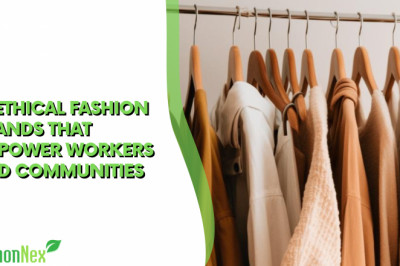
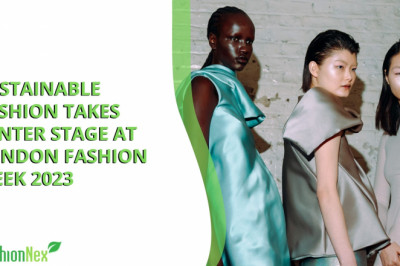
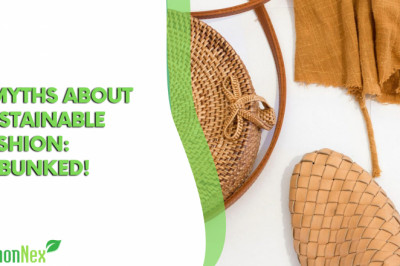


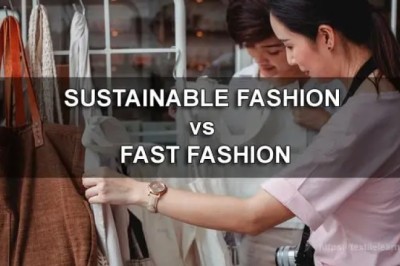


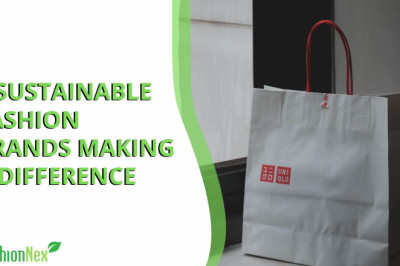

Comments
0 comment